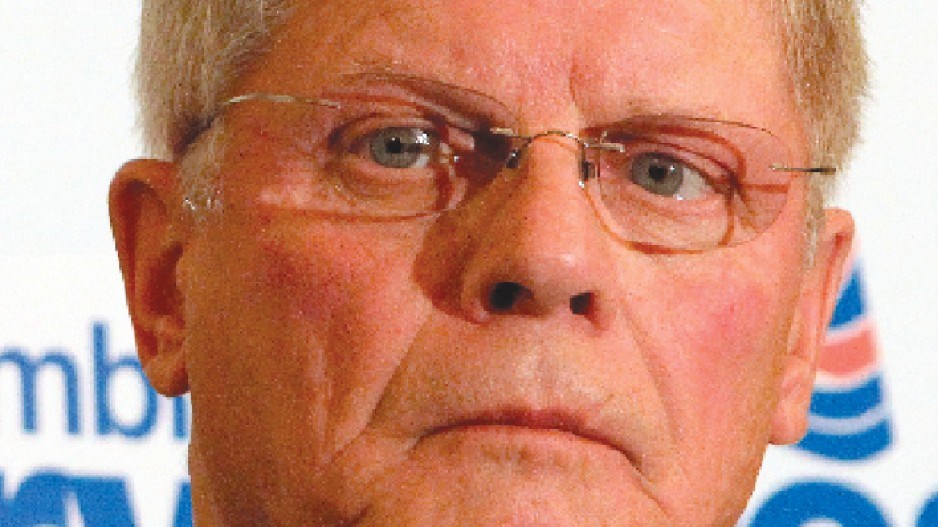Q: What is your plan to improve B.C.’s business and investment climate?
A: A big incentive for business for us is the elimination of the carbon tax. If you’re transporting goods out of the city into the interior, or if you’re a business operator in the north or Interior of the province, or on Vancouver Island, if you’re paying that carbon tax, it increases the cost of doing business.
Q: When you talk about not increasing business taxes, how would you wrestle with the issue of the debt and the deficit?
A: We propose [that] … the fall session legislature be dedicated to [examining] spending of not only the in-line ministries of government but also the Crown corporations and also the so-called SUCH sector: the schools, universities, colleges and hospitals. … We are also looking at a legislative budget office to assist MLAs.
Q: That sounds like you’re adding more people somewhere.
A: It is adding more people, no question about it, but we think that if you’re going to do the job of scrutinizing that spending, you have to make an investment in it.
Q: How do you plan to reduce B.C.’s debt over the next five years?
A: We are calling for balanced budgets over the next five years. We took the revenues that were projected by Credit 1 here in British Columbia, which I think is quite reputable, and combined with that and some controlled spending we think we can balance the books and show a modest surplus.
Q: Some of the debt cutting you’re referring to also will rely on natural resources. B.C.’s revenue is really affected by, say, natural gas prices dropping.
A: Natural resource revenue is on the rebound. If you look at the United States, housing starts are up, if you look at the growing markets that we have in China and India the rebound in the U.S. housing market is going to increase the value of lumber that we export – that will be helpful to government when it comes to revenues.
Q: In your platform you say that the Liberals have underestimated revenue.
A: I don’t think anyone’s going to believe those numbers. They certainly weren’t believable in 2009 and I don’t think these budget numbers are that believable either.
Q: How would you attract new investment and head offices to the province?
A: When it comes to attracting head offices, it’s a challenge when you’re directing people to come into the Lower Mainland because of the high cost of real estate and the high cost of living. The best way we can do that is we have to keep the taxes down.
Q: Given surging health-care and education costs, where will you cut to rein in spending?
A: I think that there’s probably a host of issues that will come out when we examine the books. One of the factors you read about with health care is the high cost of administration
here in Canada, and not just in British Columbia, but also in Canada.
Q: How would you accelerate the resolution of First Nations treaties?
A: The feds have to step up to the plate, realize that they have that primary responsibility, they have to be operating within the parameters of the Supreme Court of Canada and other court decisions. I think that that’s where we have to go.
Q: So would you cultivate that relationship?
A: Absolutely. You have to realize that some of these communities, where people may not have a background in some of these trades, there may be a fear of post-secondary education or even education itself, and I think we have to provide the support workers that are going to encourage young people who have those skills and encourage them to develop it.
Q: What changes in immigration and temporary foreign workers [TFW] policies will you be pushing for federally to meet B.C.’s labour needs?
A: Part of the problem is that [companies] may be able to get [TFWs] cheaper. … That’s one aspect. The other aspect is the TFWs were supposed to bring in for these mines, and again there was plenty of lead time for the government to ensure that Canadians had those skills, and nothing was done.
Q: So how would you address the issue?
A: We have to ensure that British Columbians who are leaving school have the skills necessary to do the kind of jobs that are available. Lots of times it takes counselling, it takes effort to make young people realize what’s out there and the opportunities that are there.
Q: In what key areas will you be seeking Ottawa’s help to achieve B.C.’s economic goals?
A: What we really want to do is encourage Ottawa to keep its taxes down, to keep its spending under control, as I think it’s doing, and for us to do the same. •




